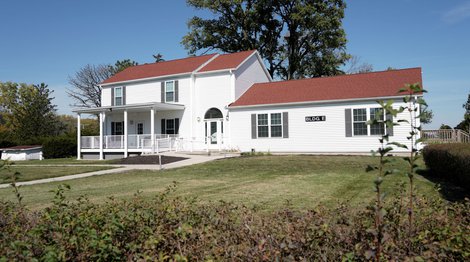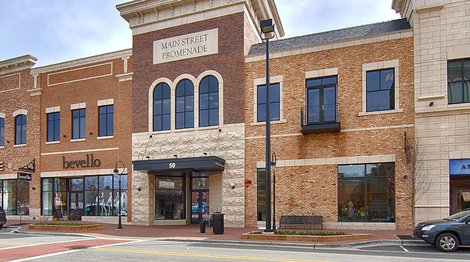Find rehabs and addiction treatment in Illinois
From rural meth, inner-city crack or heroin to alcoholism and the spread of opioids in our communities - whatever the problem - Illinois has a lot of it. Addiction is a public health crisis of staggering human and economic proportion. An estimated 985,000 people are suffering from chemical dependency or abuse within the state of Illinois alone!
When caught in the web of drug addiction or alcoholism, breaking free can seem an impossible task. However, drug treatment and drug rehab work; and through therapies of addiction treatment, you'll learn what you need to know to stay clean and sober for good. You can get better, and your recovery begins the minute you commit to professional help. Find a drug rehab program that fits (private drug rehab, holistic drug rehab, long term drug rehab,... ) get help and get better.
Befitting the size, density and diversity of the state, residents of Chicago and Illinois have an excellent selection of drug treatment options available to them.
Illinois is multicultural and economically diverse, and as such there are rehabs available to treat all in Illinois, with cultural sensitivity and at a price that all can afford. While many of the best rehabs will work with your insurance provider, for those without comprehensive health insurance, there are also several very low-cost or even free drug and alcohol rehabs throughout the state.
No one in Illinois needs to continue to abuse drugs or alcohol, thinking that they can't get help. Wherever you are, whether you are - rich or poor, there is someone ready to help you get better!
The Illinois Helpline for Opioids & Other Substances is available around the clock on (833) 234-6343. It is the only statewide, public resource for finding addiction treatment and recovery services in Illinois, with or without insurance.
-
Treatment Centers (47)
-
Top Luxury Rehab (1)
-
Teen Rehab Programs (12)
-
Sober Living Homes (37)
-
Outpatient Rehabs (29)
-
Join America's independent addiction treatment directory!from $19 /month
not-for-profit orgs FREE! -
AD
-
AD
-
Boone County, IL (1)
-
Cook County, IL (64)
-
DuPage County (3)
-
Iroquois County (1)
-
Kane County, IL (2)
-
Lake County, IL (13)
-
Macon County, IL (2)
-
Sangamon County (3)
-
Will County (6)
-
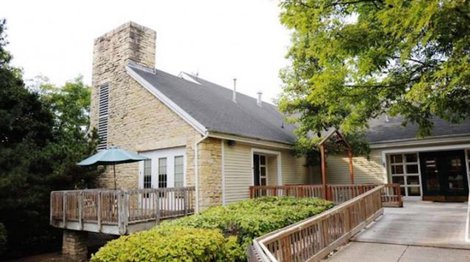 Timberline KnollsTop Luxury Rehab
Timberline KnollsTop Luxury RehabTimberline Knolls - one of the leading residential treatment centers in the U.S. – helps women struggling with: eating disorders, alcoholism, co-occurring disorder, drug addiction, mood disorders, trauma & PTSD.
-
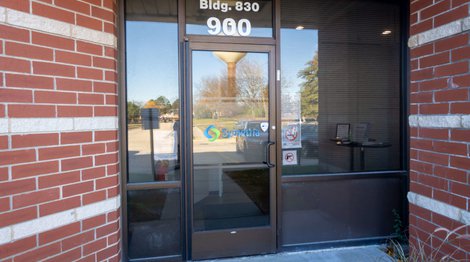 Symetria Recovery - Vernon HillsOpioid Treatment Program, Outpatient Rehab
Symetria Recovery - Vernon HillsOpioid Treatment Program, Outpatient RehabSymetria Recovery offers comprehensive outpatient services using the Symetria Method®. Their unique approach to opioid dependency combines medication-assisted therapy (MAT) with cognitive behavioral counseling (CBT) delivered in an outpatient setting.
-
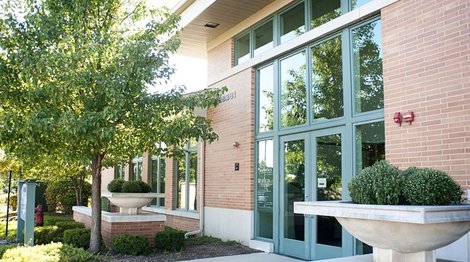 Symetria Recovery - NapervilleOpioid Treatment Program, Outpatient Rehab
Symetria Recovery - NapervilleOpioid Treatment Program, Outpatient RehabSymetria Recovery offers comprehensive outpatient services using the Symetria Method®. Their unique approach to opioid dependency combines medication-assisted therapy (MAT) with cognitive behavioral counseling (CBT) delivered in an outpatient setting.
-
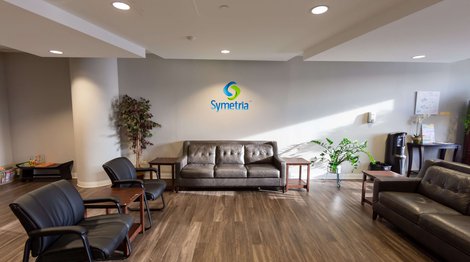 Symetria Recovery - Des PlainesOpioid Treatment Program, Outpatient Rehab
Symetria Recovery - Des PlainesOpioid Treatment Program, Outpatient RehabSymetria Recovery offers comprehensive outpatient services using the Symetria Method®. Their unique approach to opioid dependency combines medication-assisted therapy (MAT) with cognitive behavioral counseling (CBT) delivered in an outpatient setting.
-
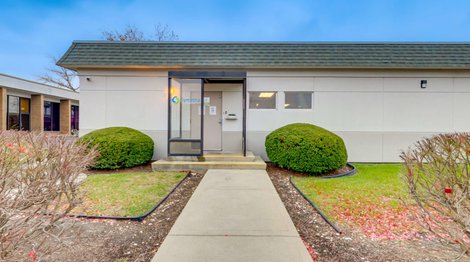 Symetria Recovery - JolietOpioid Treatment Program, Outpatient Rehab
Symetria Recovery - JolietOpioid Treatment Program, Outpatient RehabSymetria Recovery offers comprehensive outpatient services using the Symetria Method®. Their unique approach to opioid dependency combines medication-assisted therapy (MAT) with cognitive behavioral counseling (CBT) delivered in an outpatient setting.
-
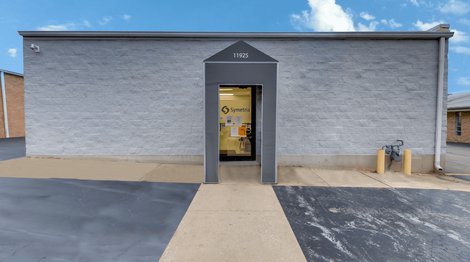 Symetria Recovery - Palos HeightsOpioid Treatment Program, Outpatient Rehab
Symetria Recovery - Palos HeightsOpioid Treatment Program, Outpatient RehabSymetria Recovery offers comprehensive outpatient services using the Symetria Method®. Their unique approach to opioid dependency combines medication-assisted therapy (MAT) with cognitive behavioral counseling (CBT) delivered in an outpatient setting.
-
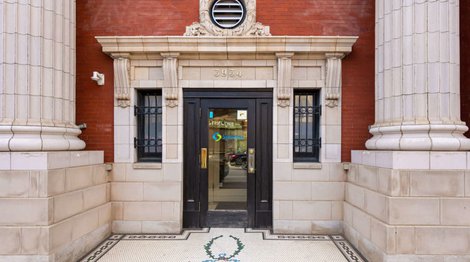 Symetria Recovery - ChicagoOpioid Treatment Program, Outpatient Rehab
Symetria Recovery - ChicagoOpioid Treatment Program, Outpatient RehabSymetria Recovery offers comprehensive outpatient services using the Symetria Method®. Their unique approach to opioid dependency combines medication-assisted therapy (MAT) with cognitive behavioral counseling (CBT) delivered in an outpatient setting.
-
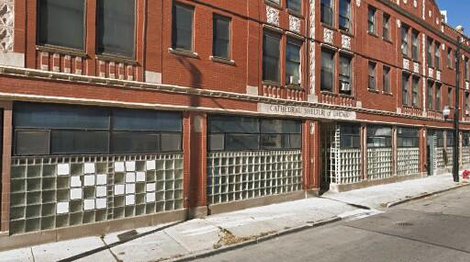 ReVive Center for Housing and HealingSober Living Home, Treatment Center
ReVive Center for Housing and HealingSober Living Home, Treatment CenterReVive Center, formerly Cathedral Shelters of Chicago, is a certified long-term residential addiction treatment program and affordable housing provider for homeless men and criminal justice clients. Free of charge to those in need.
-
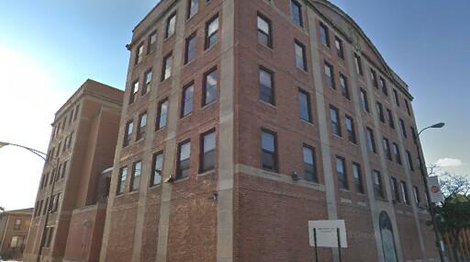 The Women's Treatment CenterSober Living Home, Treatment Center
The Women's Treatment CenterSober Living Home, Treatment CenterLocated on Chicago’s Near West side, The Women's Treatment Center (TWTC) is a community facility and SAMHSA-certified opioid treatment program that provides residential detox, rehab and recovery housing for women, including pregnant women and women with children. TWTC is a charitable organization and no woman will be denied care for financial reasons.
-
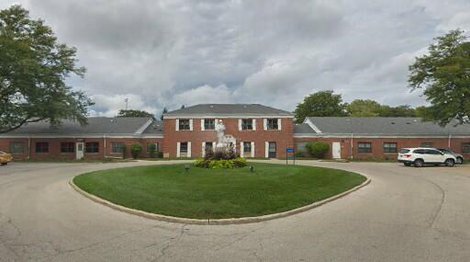 Maryville Des Plaines CampusTeen Rehab Program
Maryville Des Plaines CampusTeen Rehab ProgramMaryville Academy offers residential long-term inpatient care for teen boys and girls with substance abuse, dual diagnosis or behavioral problems, and for pregnant or postpartum young women. Maryville opoerates multiple locations. Payment by health insurance or self-pay on a sliding scale based on income.
